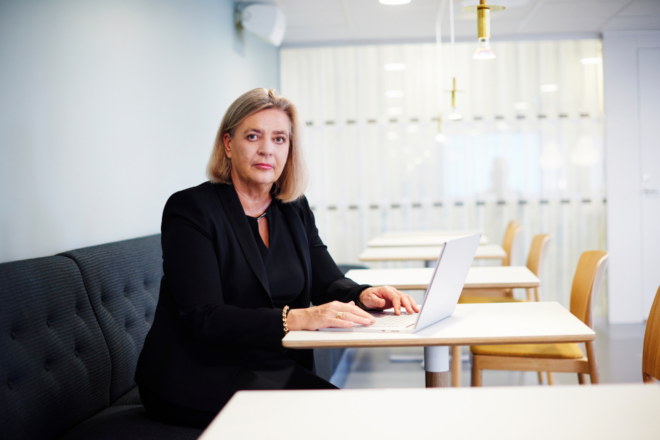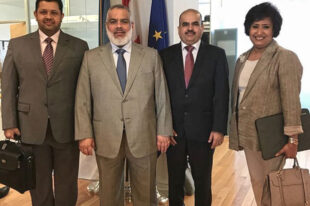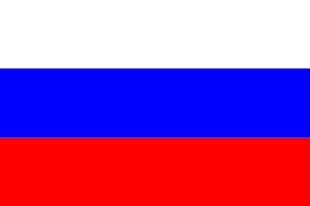The Role of Supreme Audit Institutions in a Changing World

By Auditor General Helena Lindberg, Riksrevisionen
Introduction
As Auditor General, I have had the privilege of overseeing our national audit office during a period of change and significant challenges. As I reflect on my seven years in office, there are several key themes and lessons learned that I find to be essential for the ongoing development and effectiveness of Supreme Audit Institutions (SAIs) globally.
The journey of being an Auditor General is one of continuous learning and adaptation. We encounter an ever-changing landscape of challenges and opportunities. However, with a clear vision, strategic thinking, and a committed team to help us, we can navigate these complexities and make a meaningful impact.
Aspects to consider when managing Supreme Audit Institutions
An issue facing SAIs today is the rapidly evolving arena of public sector governance. Governments are struggling with complex and interconnected global challenges, such as climate change, cyber-security threats, and public health crises. These challenges necessitate a more agile and forward-thinking approach to auditing, while we simultaneously remain loyal to our main task as auditors.
I have found some aspects that I would like to share for Supreme Audit Institutions to remain relevant and deliver on our important task.
Positive internal culture
Within our organisation, fostering a positive internal culture has been paramount. An inclusive and supportive environment in which employees feel valued and trusted is essential for change. Over the years, we have prioritised building a culture of trust and innovation. Under my motto “One Audit Office that lies at the forefront”, my aim has been to instil a sense of unity and a drive towards common goals. This has not only improved employee morale and engagement, it has also driven innovation in our audit processes and methodologies. We have introduced initiatives that encourage collaboration, knowledge sharing, and continuous learning, which are critical for staying ahead in a rapidly changing world.
Strategic thinking
Strategic thinking is another key element of our success. When I assumed the role of Auditor General, our organisation faced several challenges, including a fragmented structure and a lack of cohesive strategic direction. We embarked on a comprehensive strategic planning process, which involved setting clear goals and objectives, aligning our resources and efforts, and continuously monitoring and adjusting our strategies. This strategic approach has enabled us to better anticipate and respond to emerging risks and opportunities, ensuring that we remain relevant and impactful in our work.
Digitalisation
The digital revolution has transformed the way we conduct our audits. Digital tools and technologies have enhanced our ability to collect, analyse, and interpret vast amounts of data, leading to more robust and evidence-based audit findings. We have invested in building our digital capabilities, including data analytics, AI, and blockchain technologies, which have enabled us to conduct more efficient and effective audits. However, this digital transformation also brings new challenges, such as ensuring data security and privacy, which we must continuously address.
Independence and a good relationship with parliament
The independence of SAIs is fundamental to their credibility and effectiveness. The Swedish legal framework guarantees our operational independence, allowing us to conduct our audits without undue influence or interference. It has been equally important to maintain a constructive and transparent relationship with parliament. By engaging in open dialogue, providing clear and accessible reports, and offering evidence-based recommendations, we were able to help build trust and support for our work in parliament, enhancing our impact.

Developments in INTOSAI and the Capacity Building Committee
The International Organization of Supreme Audit Institutions (INTOSAI) plays a pivotal role in promoting collaboration, knowledge sharing, and capacity development among its members. During my term as Auditor General and vice chair of the INTOSAI Capacity Building Committee (CBC), I have seen INTOSAI develop in a very positive way. I would especially like to mention our latest strategic plan, which is clearer and more concise and realistic than previously. In the area of capacity development, I am also very proud of our Goal 2 Operational Plan which I trust will help focus INTOSAI resources and initiatives better, in line with regional priorities. I have also seen INTOSAI’s structure for standard-setting improve and find its formats, which I hope will result in even more efficient processes and better standards in the future.
In our work in the Capacity Building Committee, we have put focus on the capacity development needs of SAIs and regions, in partnership with other INTOSAI bodies and in dialogue with external stakeholders and partners. As part of these efforts, we have been actively involved in initiatives aimed at supporting SAIs operating in complex and challenging contexts in general, and in Small Island Developing States in particular. We have also initiated work relating to the audit of donor funds, which I hope will lead to good practices for both SAIs and donors, to ensure that this important work can continue in a sustainable manner. These efforts align with INTOSAI’s ambition to leave no one behind and are crucial for ensuring that all the members of the global audit community have the capacity and ability to meet the diverse and evolving needs of our societies.
The future ecosystem of accountability
Looking ahead, the accountability ecosystem will continue to evolve. While the role of SAIs will probably remain the same, we must adapt our approaches to address emerging issues, leveraging new technologies and methodologies while maintaining our core values of independence, transparency, and accountability. Close collaboration and interaction with other organisations will grow even more essential in the future.
As I will soon be leaving the Swedish National Audit Office, I was asked to give some advice to my colleagues. It is not an easy task, since you are all highly qualified for your jobs. However, if I were to give some humble advice, it would be the following: embrace change and innovation, foster a culture of trust and collaboration within your organisations, and maintain a strategic focus on the long-term impact of your work. Stay connected with your peers through forums like INTOSAI and leverage the collective knowledge and experience of the global audit community. Finally, never lose sight of the importance of independence and transparency, which are the bedrock of our profession.




